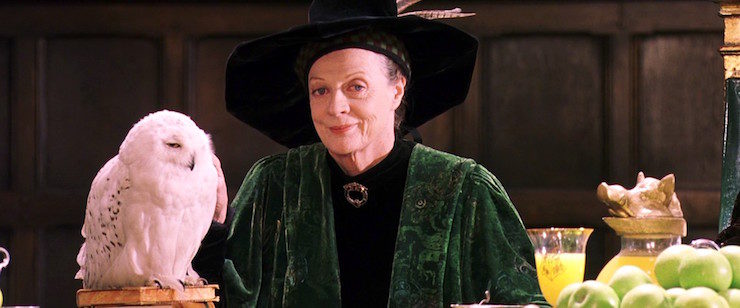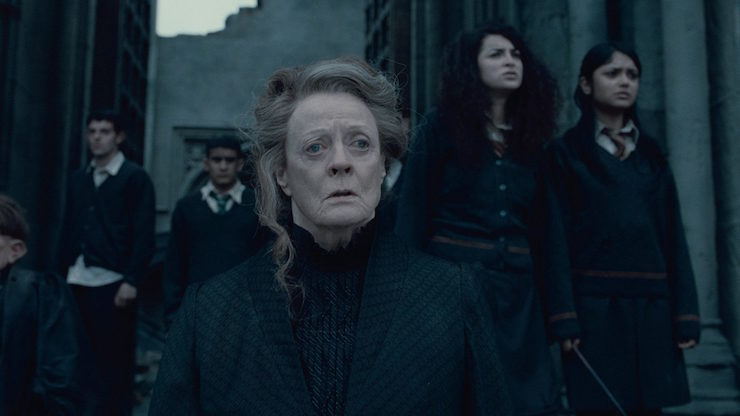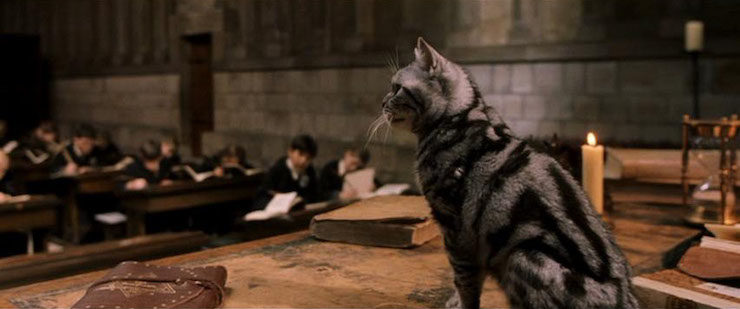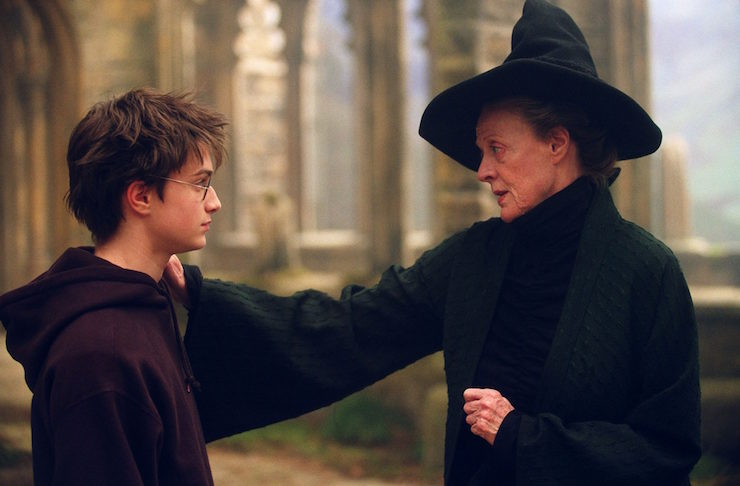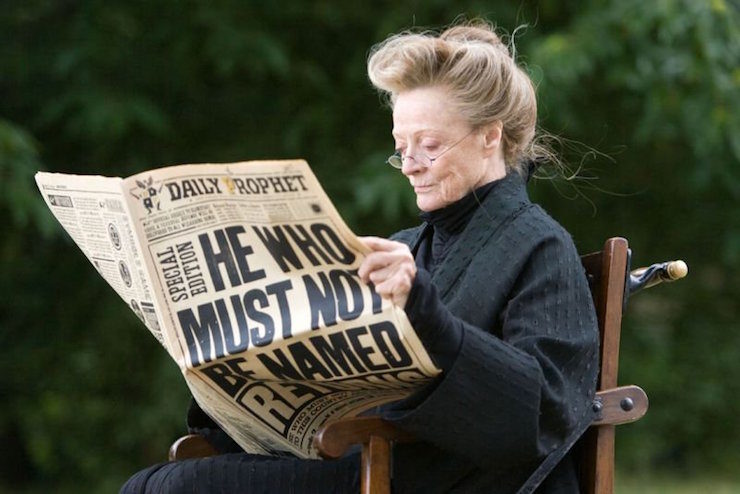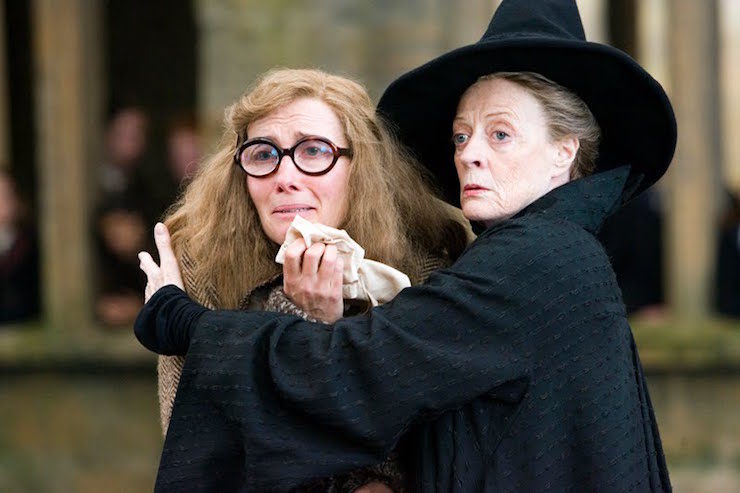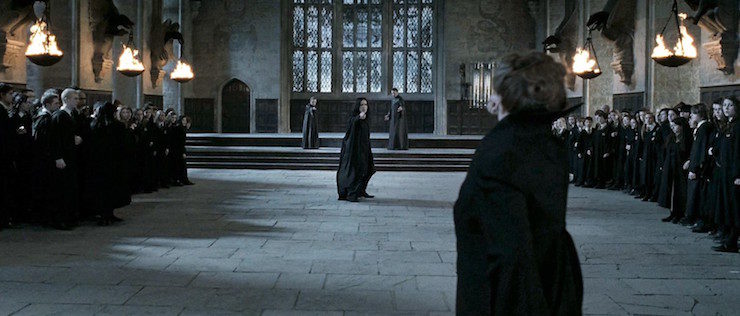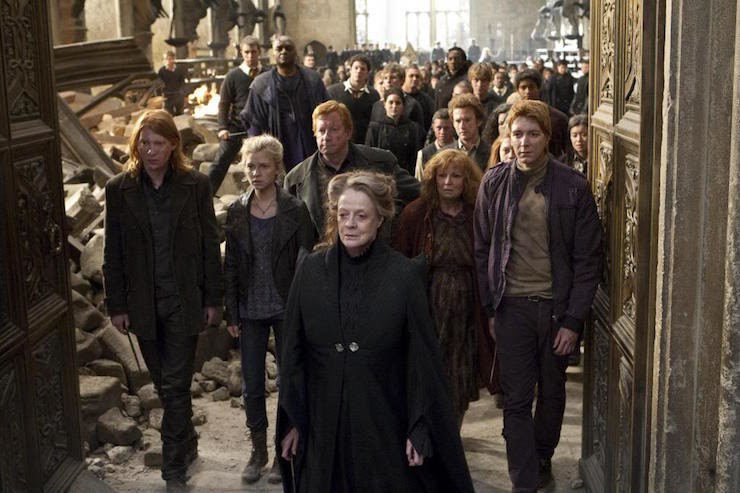Born to a man who can’t possibly understand, and the woman who chose him over her magic.
Born to take care of two brothers who have powers they must, at all costs, hide.
Born to leadership.
Born to duty.
Minerva.
Prefect, Head Girl, winner of Transfiguration Today’s Most Promising Newcomer award. Minerva McGonagall is born into a home that requires stringent observation of rules; a home that will eventually attempt to conceal no fewer than four magical residents from the Muggles that surround them. Young Minerva is the brightest witch of her generation by many estimations. And yet, for as many years as Harry Potter will live in ignorance of his magic, Minerva is forced to hide her light behind a bushel in order to protect her Muggle minister of a father. She teaches her brothers to hide, too. She teaches them to survive.
What is this young Minerva, if not a teacher from the beginning? Eleven years of learning the rules, and eleven years of reinforcing them, because the price for being magic in postwar Britain is a higher price than she or her family can pay. Eleven years of setting aside childish things, because her brothers need someone stern to teach them how to survive in the life Minerva’s mother has chosen for them.
Eleven years of pretending to be less than she is.
Until one day, her letter arrives, and everything changes.
Fifty years later, the voice that whispered admonitions to her brothers is raised in a battle cry: “Hogwarts is threatened! Man the boundaries. Protect us! Do your duty to our school!”
Minerva—now Professor McGonagall, now a legend. A hazard to students who would break the rules she has etched onto the surface of the heart they think to be stone.
She who has hidden, and fought, and hidden, and fought. She who has never laughed in the face of danger—she who has instead stood and faced it with a straight back and a thin-lipped, unamused stare.
If anyone has the right to say “do your duty,” it’s Minerva.
To Minerva, duty has meant digging into a deep well of courage, becoming a spy for the resistance. She’s gathered intelligence for them in her registered Animagus form—the only form besides her own that she can take without the help of a potion. A form in which she can hide her claws or reveal them at will. A form that any of her former coworkers or colleagues or students, many of whom are Death Eaters, might easily recognize.
To Minerva, duty has meant continuing to plumb the depths of that courage even as her first love dies. Even as her brother dies. Even as her students die. Even as so, so many die.
Minerva understands duty, because Minerva understands courage.
Minerva demands courage.
She carries the flame of institutional authority to light her students’ way through the darkness that is youth. She walks the narrow path upon which her authority as a female professor of unyielding dignity is permitted to tread. Not for her, the jolly eccentricities of Dumbledore; let him deliver cryptic pronouncements and belated guidance. Minerva will be the steady, the stable, the stern, the constant. She protects their childhoods while shaping them into the adults they must become once they leave her care. She allows them just enough indiscretion, all the while feeding a fine line of responsibility into their hands until one day they realize that they’ve woven their own adulthoods under her supervision.
Hundreds of them—boisterous and scared, bullies and victims, pranksters and marauders. She sees them all. She loves them more than they will ever know.
They love her more than she will ever acknowledge.
And then, of course, there’s The Boy.
He lived.

The child of two Gryffindors, two of hers. Two of the bright and burning children she walked beside as they made mistakes, so many mistakes, and as they did a few things right, and as they found each other. As they dug deep into their wells of courage, and found the strength to defy evil.
Two of the children that were lost to that evil they defied.
Two of her bright and burning Gryffindors, their light gone so soon. Too soon. Lily and James, vanished like so many others before them.
But he lived. The boy lived.
And after the boy has spent eleven years hidden under a bushel, his letter arrives, and everything changes. Because the boy comes to Minerva’s house.
Minerva McGonagall has always felt herself beholden to her duty. Her duty, which she feels in her bones, in her very soul, is a duty to justice. It is a duty which many have sought, whether intentionally or inadvertently, to subvert. Some have tried to lure her away from her duty with romance; others, with power; others, with threats.
But Minerva McGonagall knows her duty.
Her duty is to teach.
She taught her brothers to be safe, at least while they were children—at least, until death reached for them as it reached for so many others. As it reaches for all her students.
She’ll teach these, too, then. These children, so young, too young—but she’ll teach them everything she can. Because children must learn.
They must learn that strength is expected of them.
They must learn responsibility.
They must learn to fight.
McGonagall teaches Harry Potter, at least as much as she can, for all he cheats on his essays and stumbles through his exams. She teaches all of his classmates, many of whom are more capable than he. She watches him suffer, and doubt, and earn new scars, just like any other boy. She walks beside him as he makes mistakes, so many mistakes, and as he does a few things right. She lets him see her disappointment when he fails to meet her expectations, and she lets him see her pride when he succeeds, and she lets him fall, and she lets him learn to fight. She lets him learn when to trust himself and his instincts, when to ignore the word “no” and when to heed it.
And as Harry Potter grows strong and vigilant in her house, Minerva watches his enemy rise. Voldemort comes to power, and the Ministry of Magic falls to darkness, and Minerva’s Gryffindors start to come to the tower with scars on the backs of their hands and fear in their eyes.
She starts to see the shape of the battle that the children will be forced to fight. The battle that Harry will be forced to fight. She starts to look at all her bright and burning Gryffindors, and she wonders which of them will survive.
She knows the battle that is ahead of them.
It’s a battle she’s fought before.
It’s a battle she’s prepared to fight again.
She loses.
The Battle of the Astronomy Tower is a landmark loss for The Order of the Phoenix and for Minerva. She lets Snape pass her by—the man so many said was a danger, the man so many doubted. She lets him pass her by, and he climbs the stairway behind her to murder her friend, her mentor, her headmaster, her general.
Dumbledore is dead, and the loss is brutal. It cannot be undone. It cannot be denied. The hearts of those who loved him cry that there must be some way—but no.
He is gone.
How easy it would be to accept defeat.
The enemy rises to power; the enemy rises to supremacy.
How easy it would be to bow her head and follow the evil that has bought and threatened and murdered its way into authority.
But McGonagall has never accepted “easy.” She has never set foot on the path of least resistance. She has stood against tyranny, even when the victim she must protect is distasteful to her. Even when the oppressor carries a writ of authority from the Minister of Magic himself. She has stood against tyranny with such resolve that no fewer than four stunning spells are required to make her stand down. She knows what is right, and she knows what is true. Above all, she knows her responsibility to the students of Hogwarts—and she will not be deterred.
She loses at the Battle of the Astronomy Tower. She loses at many battles thereafter, large and small, subtle and sweeping.
But she does not lose her sense of duty.
The final battle comes to her very doorstep. The Battle of Hogwarts.
It’s a battle that she’s been fighting since she first heard one student call another “mudblood.” It’s a battle she fights every time a student’s father sends her an owl demanding special consideration for his last name. It’s a battle that began for her the moment she escaped the demands of her disguised household and found herself a member of a society that named her half-blood before it ever named her genius.
It’s a battle against those who would flatten her family, her potential, her ambition. It’s a battle against those who would see many of her bright and burning Gryffindors bow to those whose bloodlines mark them ‘pure’.
It’s a battle she’s been losing steadily for nearly seven years, but the losses don’t matter. She has a responsibility.
She prepares to fight.
“Hogwarts is threatened! Man the boundaries. Protect us! Do your duty to our school!”
This, she says to the living armor that protects Hogwarts.
This, she says to her fellow staff.
This, she says to her students.
This is her message to all of them:
You have been given a great gift. You have received food, shelter, education, mercy, kindness, growth. You have received all that this place could think to give you, and more, which you took. You have found love here, and hate, and friendship, and work, and passion. You have found your callings here.
This place has given you everything you could hope to take from it. All it has ever asked in exchange is your loyalty.
This place calls upon you now. It calls upon you to protect those who will come after you; those who would seek food, and shelter, and education, and mercy, and kindness—they call upon you. Your duty is to this place, and your duty is to those people.
This place of protection, this place of refuge, this golden door is threatened. Man the boundaries. Protect us.
Do your duty.
Sarah Gailey’s fiction has appeared in Mothership Zeta and Fireside Fiction; her nonfiction has been published by Mashable and Fantasy Literature Magazine. You can see pictures of her puppy and get updates on her work by clicking here. She tweets @gaileyfrey. Watch for her debut novella, River of Teeth, from Tor.com in 2017.










